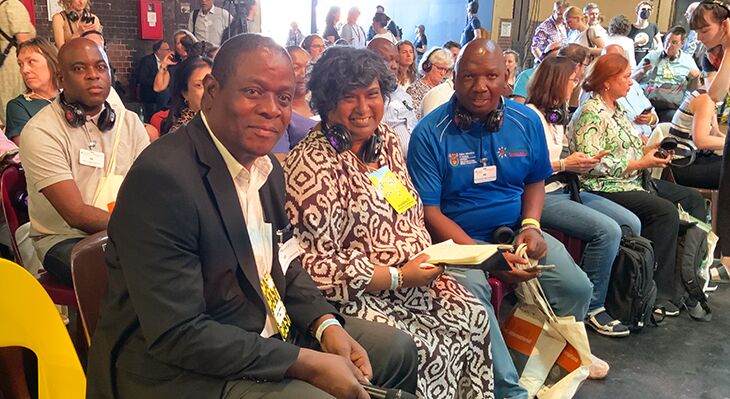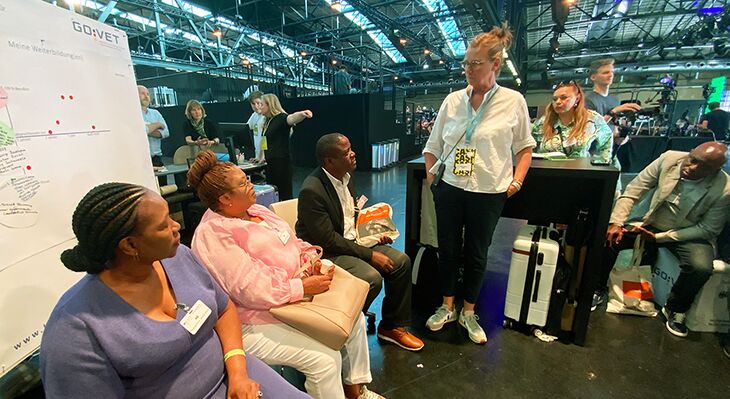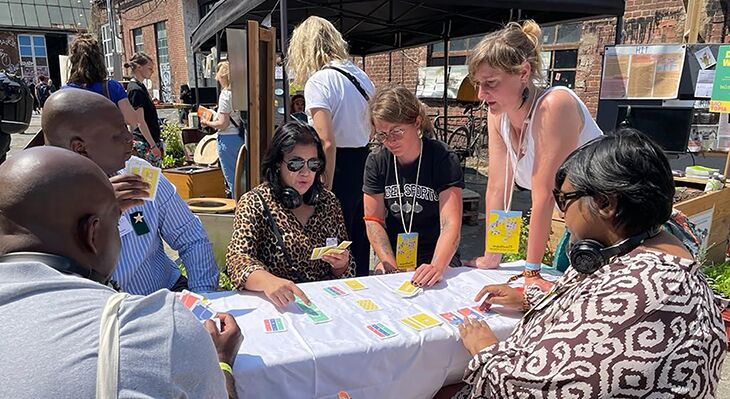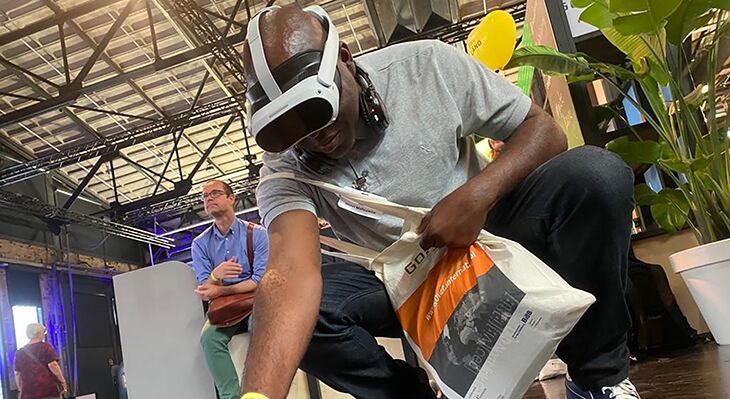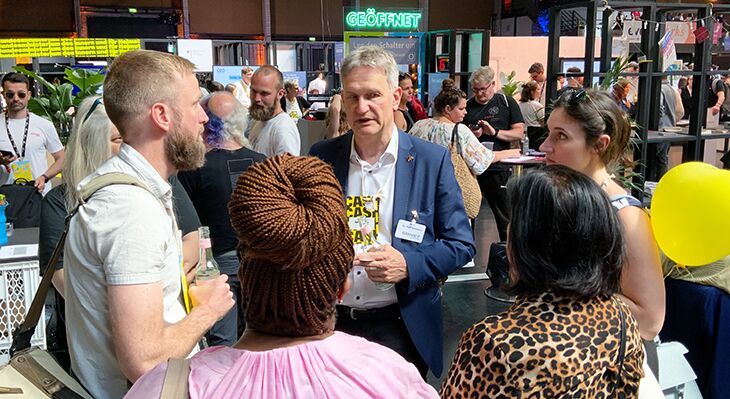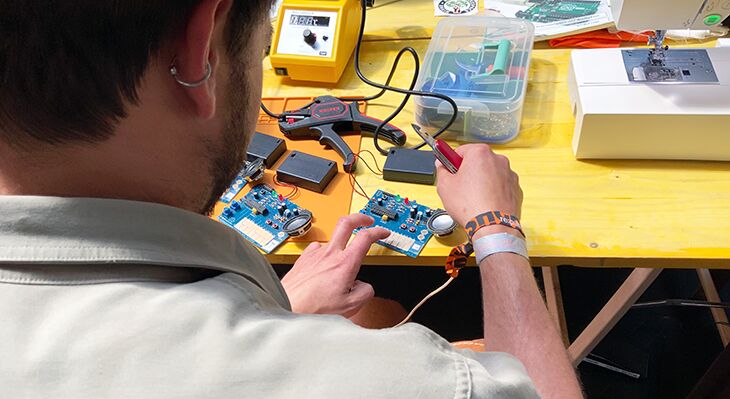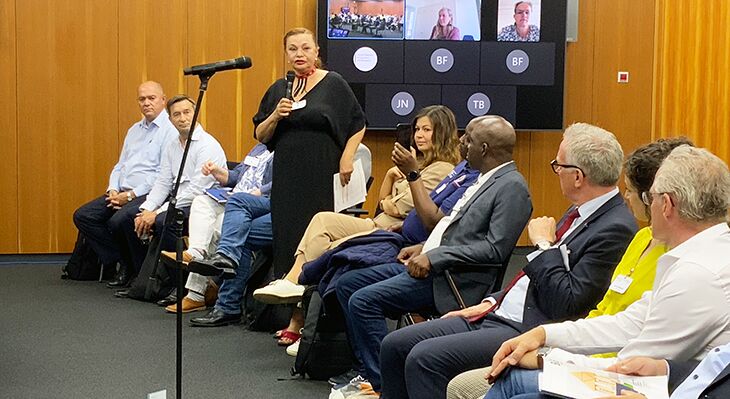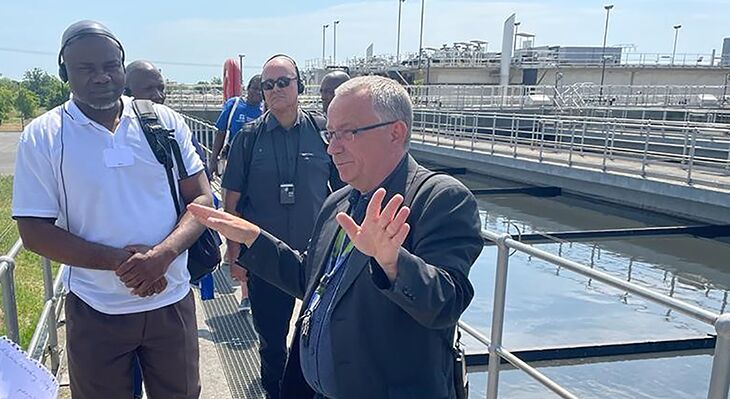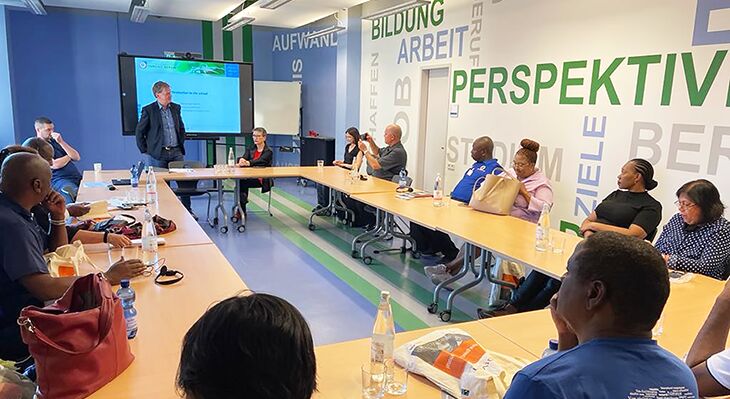South Africa: Sustainability in vocational education and training
14.06.2023
South Africa and its neighbors are developing strategies for vocational education that promote a sustainable and green economy. Experts from both countries recently exchanged ideas during a study tour in Berlin which included participation at the re:publica conference.
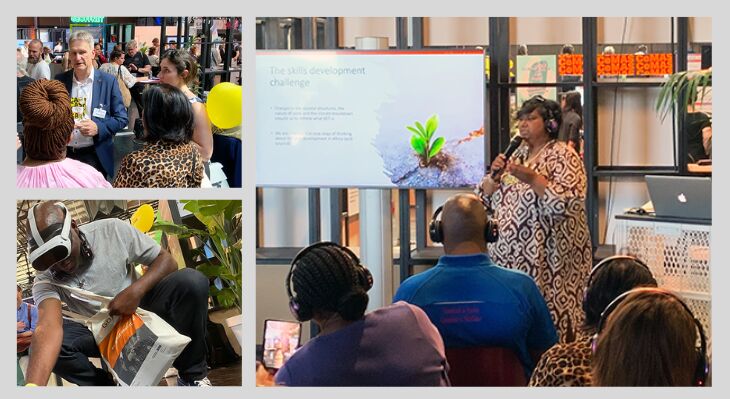
Weather and climate fluctuations are on the rise in many parts of Africa, leading to increased poverty, hunger, and displacement. Climate change could further impact the economic performance of African countries in the coming decades, necessitating a change in perspective. Sustainability must become a driving force for economic transformation.
Leading researchers from Southern Africa examine how vocational education and training can promote a sustainable and green transformation. At the same time, high levels of social inequality and extremely high youth unemployment persist. Major transformation processes raise questions about job security and the skills needed to keep pace with changes in the world of work. In Southern Africa, a just socio-ecological transformation, a "just transition", has moved to the centre of development strategies. Vocational education and training plays an important role in this and is closely linked to lifelong learning, adult education and local communities.
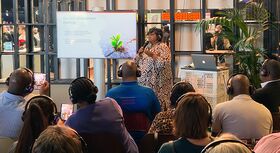
These topics were also the focus of a study tour with 15 South African VET partners from politics, science, VET authorities and colleges, who came to Berlin for an exchange with German experts. GOVET organised the study tour as part of the bilateral cooperation of the Federal Ministry of Education and Research (BMBF) with the South African Department of Higher Education and Training (DHET).
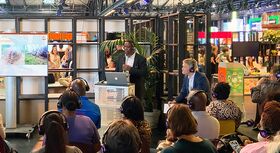
One highlight of the tour was the re:publica 2023 event, where Dr Ralf Hermann from GOVET moderated a session featuring two speakers from Southern Africa. Dr Presha Ramsarup, the head of the Centre for Researching Education and Labour at the University of the Witwatersrand in Johannesburg, shared her research on learning pathways and transformative sustainability education. She was involved in the national Environmental Sector Skills Plan. Dr Presha Ramsarup highlighted the importance of data-based monitoring to project competency needs and to plan relevant training content. Using an example from agriculture, she demonstrated how environmental education, alongside vocational education, can drive the transformation to sustainability in interconnected regional ecosystems and communities. The social dimension of this change is particularly important in South Africa because of the serious inequality.
In the past five years, the energy transition has failed to alleviate poverty in South Africa, and youth unemployment remains alarmingly high in our country. What we truly need is socially just and sustainable change. The key to achieving this lies in vocational education and training.
Presha Ramsarup, Centre for Researching Education and Labour at the University of the Witwatersrand in Johannesburg
Dr. Charles Chikunda from the University of Zimbabwe in Harare also addressed the interplay between VET schools and non-formal learning venues for sustainability skills development. He coordinates the UNESCO project "Sustainability Starts with Teachers" for the Southern African Economic Community (SADC).
To achieve a transformation to sustainability, it is crucial to develop curricula that align with the requirements of the current job market and integrate sustainability into these curricula. It is of utmost importance for teachers to raise awareness among their trainees about the significance of sustainable action.
Dr Charles Chikunda, University of Zimbabwe
Dr Presha Ramsarup
Dr Presha Ramsarup is Director at the Centre for Researching Education and Labour at the University of Witwatersrand, Johannesburg. She is a Senior Research Associate at the Environmental Learning Research Centre at Rhodes University and Honorary Associate Professor at the University of Nottingham. Her research work focuses on learning pathways for sustainable development and sustainability and her work is focused on skills for a just transition. She is currently engaged in several research programmes focused on transitioning the Vocational Education and Training in Africa. She is the current President of Environmental Education Association of Southern Africa. Dr Ramsarup has been a member of EEASA for over 20 years.
Go to the website of Centre for Researching Education and Labour
Dr Charles Chikunda
Dr Charles Chikunda is currently coordinating the UNESCO Sustainability Starts with Teachers, a capacity-building programme for ESD for teacher educators and Technical Vocational Education and Training (TVET) educators, running in 11 SADC countries. The aim is to integrate sustainability principles into education and training environments, with emphasis on curriculum change in Teacher Education Institutions and TVET college programmes as well as reinforcing ESD into national education policies in the southern African region, with emphasis on policies influencing the education of teachers and TVET educators for Goal 4 of the SDGs (Target 4.7).
Charles has experience in teacher education that goes beyond 20 years in the SADC region. Before joining UNESCO, Charles was leading the stakeholder engagement/social learning section in a project whose aim was to reduce vulnerability to climate change through building improved transboundary water and biodiversity governance through the adoption of science-based strategies that enhance the resilience of its people and ecosystems through systemic and social learning approaches. This include involving various stakeholders at different levels to think through current practices, supporting learning and building collective agency towards resilience.
Workshop on Sustainability in Vocational Education and Training
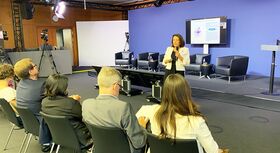
A bilateral workshop on sustainability and vocational education and training also highlighted the importance of ensuring that learners have the knowledge, skills and values needed to support sustainable development. This includes not only teaching sustainable work practices, but also modelling them in the design and delivery of VET programmes.
A lively exchange ensued between experts from both countries from politics, science and company and school practice. Barbara Hemkes from the Federal Institute for Vocational Education and Training (BIBB) presented the National Action Plan on Education for Sustainable Development, which BIBB was involved in implementing. Part of the National Action Plan were BBNE pilot projects for the integration of sustainability-related competences in training practice and the further education of trainers. The model and transfer projects proved that skilled work was an essential link between sustainability and economic development. Sustainability must be designed as part of business models. She was impressed by the strategic approach to transformation issues in South Africa and saw common problem areas that should be developed in bilateral cooperation.
We are facing very similar questions regarding sustainability in vocational education. I highly value the discussion on transformation skills – those competences in dealing with change and transformation that are required in addition to the job-specific skills. There is considerable potential for dialogue, joint research, and development.
Barbara Hemkes, Head of Division 4.2 "Innovative Further Education and Training, Permeability, Pilot Projects", BIBB
The workshop also served to network the expert communities on sustainability and vocational training from both countries. Further impulses on sustainability at vocational schools and in company-based training led to lively discussions with the competent participants in the hall and in the virtual room. The ideas and wishes of young people were also discussed. Nicolas Klasen from youpaN brought them into the discussion for each topic block. youpaN is the youth forum in which young people participate in the implementation of the National Action Plan Education for Sustainable Development (ESD). It is implemented by the Education Foundation with funding from the BMBF.
An entire study week in Berlin gave the South African participants insights into the dual system and the commitment of its actors to the turn towards sustainability. The training of teachers for vocational education and work-based study programmes were the topic at the TU Berlin. Hans-Liudger Dienel, Prof. for Technology and Education, promoted practice-oriented and work-based teaching in both vocational training and higher education.
The Max Taut School in Berlin provides training in the field of building environmental technology and educates its trainees in sanitary, heating, and air conditioning engineering in the sustainable use of resources. In addition to the effective and sustainable use of energy, this also involves waste avoidance, recycling management, water conservation, environmentally friendly materials and the preservation of natural habitats.
These topics are also important to the Sanitation, Heating, Plumbing and Air Conditioning Guild (SHK) Berlin. Andreas Koch-Martin, Managing Director of the SHK Berlin Guild, explained the role of the SHK Competence Centre in the modernisation of air-conditioning professions. In the workshops of the Berlin Chamber of Skilled Crafts (HWK), the South African guests were able to find out about offers in the electrical trades and in solar technology. The HWK offers workshops for Berlin craft enterprises that teach them how to implement sustainable management in their businesses with concrete measures. In the workshops, the South African guests were able to find out about offers in the electrical trades and in solar technology.
An understanding of sustainability that is also lived at Berliner Wasserbetriebe. With Sven Krausch, head of the training department, the delegation exchanged views on how important it is to teach young skilled workers how to use energy in a way that conserves resources. Berliner Wasserbetriebe, for example, relies on the latest technologies and renewable energies for the discharge and purification of wastewater. Conscious use of the key resource water is a central issue in Africa in the wake of climate change - and vocational training plays a crucial role in sustainable water management.
The South African delegation found it particularly valuable to come into contact and exchange with people who shape vocational education in different ways and to find answers to urgent questions.
